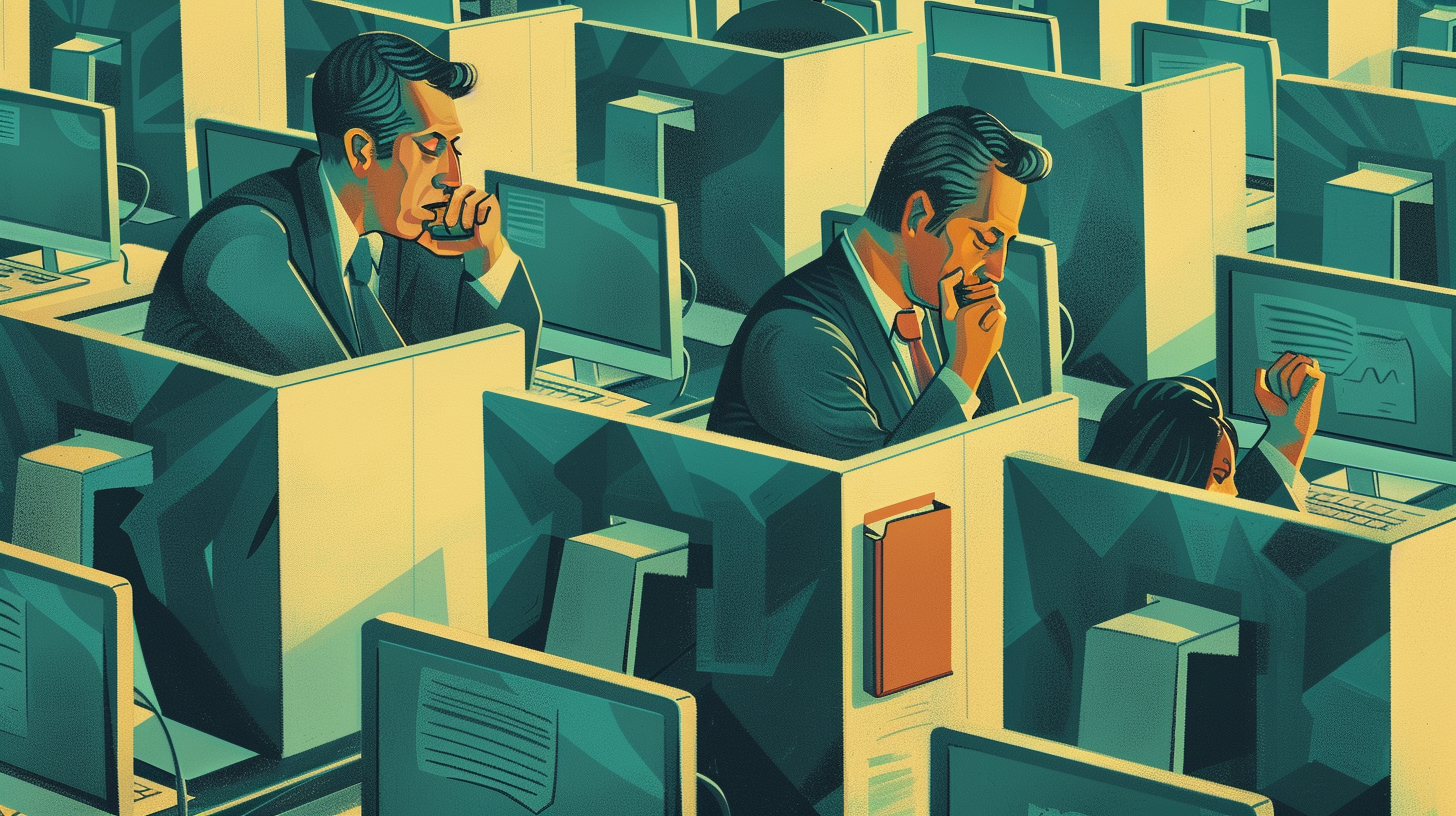The rise of wellbeing washing 🫶

It’s Mental Health Awareness Week! Which means your news feeds will be absolutely choked full of posts regarding mental health. And rightly so.
Millions of people experience emotional and psychological challenges at any time. Raising awareness is a good thing, right? RIGHT? Well, yes and no.
Talking about mental health and doing mental health are very different things. Recently there has been a rise in the number of corporations and companies co-opting the mental health message to signal they care deeply about the minds of their employees and customers. But in reality, things aren’t quite as rosy.
That’s why in this week’s Brink, I’m going to be exploring the rise of wellbeing washing: how the message of mental health was co-opted by corporations.
Washing with wellbeing 💆

First, let’s understand what we mean by wellbeing washing. Like greenwashing, wellbeing washing is when a company focuses more on appearing to care about wellbeing than they do on actually taking care of their employees.
This might be things like wellness talks organised by employers - paired with the expectation you get all your work done afterwards. Or organising wellness activities like yoga or exercise but only before or after work, so you have to extend your working day to feel better.
Or it’s offering access to free meditation or therapy apps, but doing little to address internal grievances, poor management, and in some cases, abuse. There’s a good thread on Reddit that lists all of these if you’re interested.
There’s now a growing amount of evidence supporting this. According to a recent survey, while 7 in 10 workplaces celebrate mental health awareness days, only 3 in 10 offer mental health support deemed "good" by their employees.

A different study carried out by the McKinsey Health Institute found a big disconnect in leaders' perceptions of employee wellbeing compared to the employees themselves. Employers rate the mental health and wellbeing of their employees 22% more favourably than employees themselves.
Another study found three in five (62 per cent) employees believed their employer did not care about their mental wellbeing, with more than half (55 per cent) feeling pressured to hide their mental health concerns at work.
Last, but not least, a study by the Institution of Occupational Safety and Health found that 51% of employees believed their employer was guilty of wellbeing washing. They mentioned initiatives such as free fruit in the office, mental health first aiders and wellbeing walks—which sound lovely in theory, but not when serious issues such as unrealistic workloads, workplace bullying or stress-inducing deadlines aren’t being addressed.
So what’s going on?
See no evil, hear no evil 🙈🙉

The term mental health is an amorphous blob that can include everything from acute psychiatric care to the very normal undulations of your mood that happen across a day. In other words, it’s a very hard thing to pin down.
Because of this, it’s surprisingly easy to claim you care about mental health without having to prove it. I wrote about this idea last week when it comes to influencers: The mere act of talking about it can technically, mean you are caring about mental health.
Of course, many companies go further than this, and pull out all the stops to tell their workers they care. And care they do. But there are no hard and fast rules on how to do this - and plenty of for profit companies offering their services to employers looking for a quick, simple solution. So I went looking for any official policy on the matter.

In 2008, a seminal paper written on behalf of the UK Department for Work and Pensions - that is widely accepted to have led to the proliferation of mental health stuff at work - provided guidance on what employers should do.
According to the report, three things are important:
- Prevent illness through the promotion of health and wellbeing
- Early workplace intervention on health problems
- Supports those out of work tim improve labour market participation
Again, this is pretty vague stuff. But companies have listened, sort of (I’ll come on to that later). According to research from the Chartered Institute of Personnel and Development, half of UK employers have a formal wellbeing strategy. Surely with all this focus, people should be feeling better right? Wrong.
The University of Oxford carried out a study across 143 organisations and 28,000 works and evaluated how much mindfulness, resilience training and wellbeing apps fared in improving employee’s outlook. The result? Zero. There was no evidence it improved the lives of employees at all. Other data shows this. Job unhappiness continues to remain at all time highs.
But how so? The reason has to do with how companies build their policies to focus on the individual, not the collective.
It’s a you problem, not a we problem 🤷

More boring policy stuff, sorry! But this is important. In the last section I talked about a paper written by a government department in 2008. That was updated by the National Institute for Care Excellence (NICE) in 2022.
In the updated version, NICE added more detail (finally!) for their recommendations for employers. The organisation recommended a “tiered approach” that addressed not only individual approaches but company wide ones too. They even added a line to say “do not use individual-level approaches to replace organisational strategies”. But this is exactly what has happened.
This is what the University of Oxford study found in abundance. Company wellness programs overly focused on the individual, and ignored opportunities to reform company policy and culture more broadly. Mental health has become seemingly a you problem, not a we problem. In essence, companies are saying: we provide all these services, just don’t have a problem with how we do business.

When your suffering is confined to you, it means the company never has to take responsibility for how it operates. It can just tell you to meditate more, as long as you get the work done of course. It’s well meaning, but utterly blind to how people work.
Mental health doesn’t happen in a vacuum. People don’t spontaneously throw their hands up in the air and shout “I can’t cope” on their own. We are intimately connected to the world around us, for better or worse. The places we work, the people we work with, the cultures we foster, all have a direct impact on how good people feel. Want people to feel better? Make the world around them better.
How do you do that? Organisational approaches to improve well being. In non layman’s terms that means things like:
- Agreements on working hours
- Oversight into workloads
- Proper grievance processing
- The ability to actively shape how you work and be supported my management.
- Better accountability: stop letting some workers coast while others kill themselves.

But do you know what that mega Oxford study did find worked when it came to improving individual employer wellbeing? Volunteering. Yep, it was the only thing that seemed to improve employee feelings. Why? Because the report suggested, it provided work that was grounded in engaging with others in a relational way. In essence, we felt better because we got to act like a human, with other humans and saw the benefit.
Not bloody rocket science is it?
Things we learned this week 🤓
- 😱 Nightmares are shaped by your personality, says research.
- 🌼 Want better sleep? Do some gardening.
- 🤖 AI reckons our gut bacteria have a role to play in Alzheimer’s
- 🧠 Want a better brain? Eat better food.
Just a list of proper mental health services I always recommend 💡
Instead of my usual news roundup, here is a list of excellent mental health services that are vetted and regulated that I share with the therapists I teach:
- 💓 Hubofhope - A brilliant resource. Simply put in your postcode and it lists all the mental health services in your local area.
- 📝 Samaritans Directory - the Samaritans, so often overlooked for the work they do, has a directory of organisations that specialise in different forms of distress. From abuse to sexual identity, this is a great place to start if you’re looking for specific forms of help.
- 👨👨👦👦 Peer Support Groups - good relationships are one of the quickest ways to improving wellbeing. Rethink Mental Illness has a database of peer support groups across the UK.
I love you all. 💋






